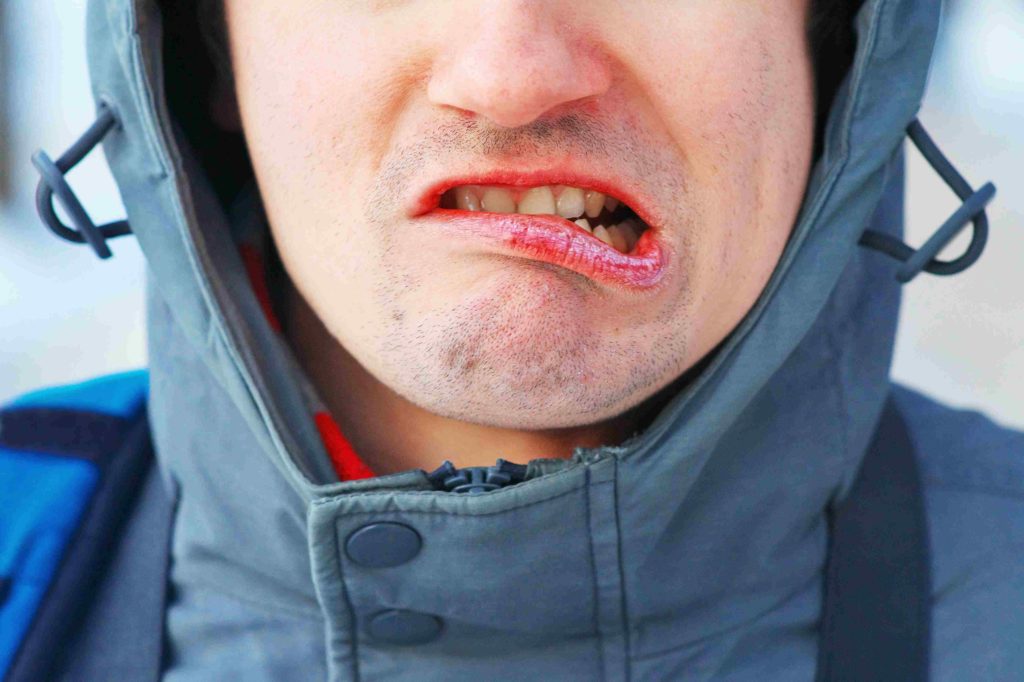Xerostomia is the medical term for dry mouth. This unpleasant sensation is generally temporary. It results from insufficient production by the salivary glands. The causes may vary from one person to another. While xerostomia is not serious in itself, it can affect oral health over time, or be a symptom of disease.
What are the symptoms of xerostomia?
Saliva protects the mouth by lubricating and cleaning it, preventing the spread of certain bacteria and aiding digestion. When less saliva is secreted, problems quickly appear in the oral cavity.
Xerostomia manifests itself in this form:
- a sensation of dry, pasty mouth
- small cracks at the corners of the mouth
- a feeling of running out of saliva
- difficulty swallowing, chewing or even speaking properly
- bad breath
- a change in the taste of food
- reduced sense of smell, in some cases
- a risk of developing oral thrush
If xerostomia lasts for a long time, the patient may also suffer from dental caries and gum disease.
What causes dry mouth?
Dry mouth can have a variety of causes. In most cases, it's a side effect of certain medications, notably antidepressants and anticholinergics. Visit smoking is another major cause of xerostomia, as is the use of certain drugs such as methamphetamines.
Although this disorder can occur at any age, it is much more common in people aged 65 or over.
However, a distinction must be made between temporary dry mouth due to occasional dehydration (in the event of fever, heat stroke, diarrhea, etc.) and permanent xerostomia. The latter can be caused by cancer and radiotherapy treatments. Permanent dryness of the mouth and eyes is another symptom of Gougerot-Sjögren's syndrome.
How is xerostomia treated?
First and foremost, we recommend that you consult your doctor for a diagnosis. He or she will investigate the causes of your dry mouth, to understand whether it's linked to an underlying condition. The practitioner may run tests to check that your salivary glands are working properly. He will also ask you about your medical history and any medications you may be taking.
If the dry mouth is due to the medication, it will subside once the treatment is over. However, you can ask your doctor to change the prescription. When it results from an underlying pathology, you'll generally have to wait until you're cured.
Whatever the case, you can alleviate the unpleasant sensation of dry mouth by taking the following steps:
- Use artificial saliva (gel or liquid) to moisten the mouth.
- Avoid smoking.
- Drink small sips of liquid, preferably water, regularly throughout the day.
- Reduce consumption of alcohol, coffee and acidic drinks (citrus juices).
- Chew sugar-free chewing gum to activate saliva production.
- Moisturize lips with a special lip balm.
- Maintain good oral hygiene.
- Brush with fluoride toothpaste to reduce plaque formation.
- Install a humidifier in your bedroom at night.
- If possible, avoid certain medications such as antihistamines and decongestants, which dry out the mouth.
- Finally, there are drugs that increase saliva production.
Consult a dentist in case of xerostomia
Xerostomia is not contagious. That said, it is estimated that around one in 5 people suffer from dry mouth, sometimes without even knowing it. If this sensation persists for more than two weeks, or if it bothers you on a daily basis, make an appointment with a dentist in Lausanne or Fribourg.
This oral health professional will inspect your oral cavity and assess the situation. We also recommend that you descaling on this occasion. If your dentist deems it necessary, he or she will refer you to a specialist for further tests.
HELVIDENT dental clinics welcome you in Lausanne, Fribourg and Aigle. Our team includes dental hygienists, dentists and dental medicine specialists. We treat patients of all ages. Don't hesitate to Contact us to make an appointment.

